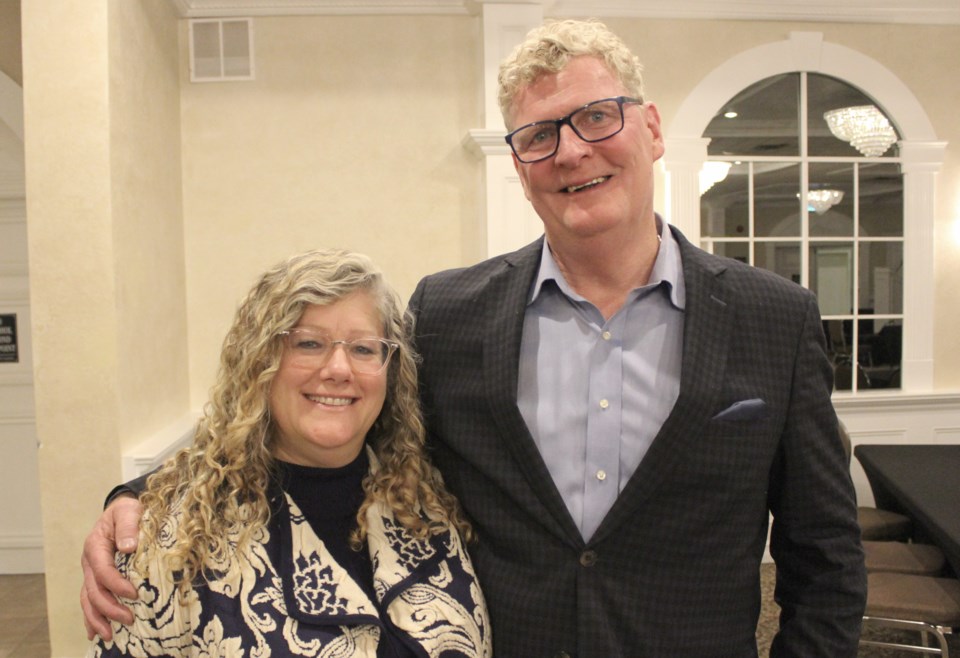After two terms in office, Orillia Mayor Steve Clarke has decided not to seek another term in October's municipal election.
Clarke has decided to step back from municipal politics in favour of spending more time on his business and with his family.
“I've got four adult children that I love spending time with, and my wife and now two lovely granddaughters. I'm really looking forward to spending more time with them,” he told OrilliaMatters. “And I will be lending more support to my business and helping out where I can, but also I’ve got some domestic projects that I have really just let slide right off the table.”
Clarke cited several key projects that pushed him into the mayoral race back in 2014, including building the city’s new recreation centre, waterfront revitalization, and the Downtown Tomorrow plan, as well as a desire to help make Orillia an attractive place to live for all age groups.
“There was a long time when some people would leave high school and graduate post secondary and then go elsewhere,” he said. “Seniors, I think, have always recognized this area as a great place to retire. I think millennials, their values have changed, (and they’re making) decisions more based on a quality of lifestyle, than on the actual job.
“If you can create an atmosphere where they can live, where they see the quality of life and (we can) provide a decent job, then I think it's a win-win.”
Now that Clarke has seen a number of the projects that pushed him into politics come to fruition, it's time to take a step back, he explained.
However, he said that he will be pushing “to the finish line,” and that signing off on Orillia’s Climate Action Plan was one of the things that kept him from announcing his decision not to run earlier.
“I think it's absolutely necessary for every municipality, every level of government to get involved, and I hope that it's a significant topic of conversation during this election,” he said.
Clarke said the teamwork and relationships he has built between city staff and council members are the highlight of his political career. Both were put to the test through the pandemic, which saw the city host over 400 emergency meetings in its efforts to steer the community through turbulent waters.
“When your community needs you is when you really stand up,” Clarke said. “Meetings (took place) many times a week and there was great cooperation. Besides our emergency committee, we also worked with the OPP, the fire department, the Department of National Defence, Soldiers' Memorial Hospital, and the Simcoe Muskoka District Health Unit, so there was some wonderful collaboration.”
Some of the key issues Orillia faces, in Clarke’s view, were exacerbated by the pandemic, including the ongoing opioid and housing crises – both of which may not be solved at the municipal level alone and require intervention from numerous levels of government.
“The housing issue and the opioid issue is something that no community is immune to in Ontario, or any urban centre, so that continues to be an ongoing challenge,” Clarke said.
“When COVID hit, if it was a housing problem, it became a full blown crisis. They're not our direct responsibility, but you can't ignore a situation where you have significant addiction and mental health issues, which every urban centre does. In this part of the world right now, I actually call it the pandemic within the pandemic,” Clarke said.
Clarke said a burden on housing, moving forward, will be the province’s mandated growth targets for the city, which will place increasing pressure on the “shortage of inventory at every level of the housing continuum.”
“We’re going to grow to 49,000 people by 2051, and you need 26,000 jobs to serve that population. My sense is that we're going to reach those population numbers before 2051,” he said.
“The pressure on housing doesn't appear to be going away. We need to find creative ways of increasing inventory. Certainly, continuous boundary expansion is unsustainable and untenable, but I believe that there is some legitimate pressure to create some boundary expansion, but that number needs to be justified,” he said.
Clarke said incoming councils will similarly face unforeseen challenges, and their success will depend on their ability to establish a positive team environment.
“I believe that there will continue to be challenges. We don't pretend to know what they all are,” he said. “There will be new responsibilities and new challenges. and I think the working atmosphere that is established early on will deem whether council is going to be successful or not.”
